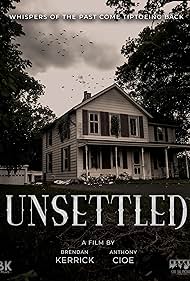From Indiana to Nicaragua
Nursing students study abroad in their family’s home country
When Julie Lara and Rebeca Rodriguez, junior nursing majors, landed in Granada, Nicaragua for a week-long study abroad community service program, the two cousins felt at home because of their personal ties to the country. Lara and Rodriguez’s parents were teenagers when they fled from a civil-war-torn Nicaragua to the Chicagoland area.
Family ties to the country became a main interest for the cousins during the program and was one of the reasons they decided to take the trip.
“In a way, we wanted to give back to the country that raised our parents,” Lara said. The pair flew in two days earlier than the rest of the group to spend time with their grandmother, who lives in Managua, Nicaragua.
Their trip included working side-by-side with doctors, educating the community on health practices and experiencing medical practices in rural areas.
In a typical day, the two would meet the rest of the group at a church that served as the meeting spot then depart to separate clinics.
“This truck would pick up the staff for the day, travel down a dirt road and then there you are, at your clinic,” Rodriguez said.
Since the group was working in rural areas that rarely provided any medical care, they would help educate the patients with poster boards that explained how to properly wash one’s hands and the symptoms of common diseases. The clinics were held in homes.
“We were [helping] the people at the time because they had no access to the internet and they didn’t really have any education on different diseases,” Lara said.
The cousins also had the opportunity to choose one subject to educate a classroom on, so they brought hand washing kits to children and taught proper sterilization.
Rodriguez said that the culture shock was not as bad because it was their culture. Parts of the Nicaraguan culture that did shock the pair included waking up at 5 a.m. to marching bands, cats fighting on their roof or neighbors loudly chasing their chickens.
They had rice and beans and chicken or steak every day. Fruit and vegetables were a luxury, as it was expensive. Though the food was a big culture adjustment, the little reminders of home were there, like eating Ramen noodles one night or meeting with the group at local coffee shops.
The cousins also went on adventures outside of all the clinical work. They got the chance to swim in a volcano as well as see an active volcano. They also explored the city of Granada, experiencing both the rural and metro parts of Nicaragua.
“You just come out of this experience knowing that you can do this, you can do nursing school,” Lara said. “It’s an experience to live through and to be shaped by, and you can’t do it if you don’t go.”



Maritza Lara • Sep 1, 2017 at 10:14 pm
Thank you for the opportunity that my daughter and nice had, to go and make a difference in their lives I’m grateful for the USA to welcome us with an open arms and the privilege to have a better life for my family, to work and gives us the opportunity this beautiful land that I love so dear to my heart to call home, we have been very bless by God all mighty in many ways to Him be honor and glory for ever Amen ,with God all things are possible ,God bless and protect our President, troops, and country .
Noel Vega • Aug 30, 2017 at 2:52 pm
It was very good experience to know ms Lara and Rodriguez. To exchange my culture with them was interesting, they also share some habits. My family and I enjoy their friendship here Granada Nicaragua.